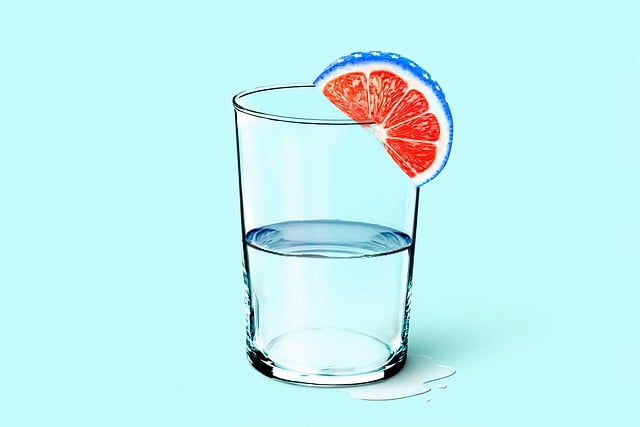Cold water immersion (CWI), a promising cryotherapy alternative, offers athletes an effective way to boost performance and speed up recovery. By submerging in cold water post-workout, CWI reduces muscle soreness, inflammation, and metabolic waste while preserving glycogen stores. This natural method, involving temperatures below 59°F (15°C), constricts blood vessels and stimulates endorphin release for improved mood and mental focus. Incorporating CWI into recovery routines alongside traditional methods like stretching and foam rolling can lead to enhanced athletic performance, faster muscle recovery, and improved endurance.
Discover the powerful impact of cold water immersion on athletic performance. In this comprehensive guide, we explore how this emerging practice, a popular cryotherapy alternative, can unlock your potential. From understanding the science behind it to its remarkable benefits for recovery and performance enhancement, we delve into effective integration strategies within training regimes. Learn practical tips and best practices to harness the healing properties of cold water immersion and take your athletic journey to new heights.
Understanding Cold Water Immersion: Unlocking Athletic Potential
Cold water immersion, often referred to as cryotherapy, has emerged as a powerful tool for athletes seeking to enhance their performance and accelerate recovery. This practice involves submerging oneself in cold water, usually ice-cold or near-freezing temperatures, for a short period. It’s not just about enduring the chill; it’s a strategic approach to stimulate various physiological responses that can significantly benefit athletic performance.
By immersing themselves in cold water, athletes can reduce muscle soreness and inflammation, two key factors that limit training capacity and delay recovery after intense workouts. Moreover, cold therapy induces vasoconstriction, narrowing blood vessels and reducing blood flow to muscles. This process helps preserve muscle glycogen stores and promotes the removal of metabolic waste products, ensuring athletes are ready for their next rigorous training session. As an effective cryotherapy alternative, cold water immersion offers a natural way to enhance performance without the potential side effects associated with some extreme cryo-based treatments.
The Science Behind Cryotherapy Alternatives
The concept of cold water immersion as a performance enhancer has gained traction, offering an alternative to traditional recovery methods. Cryotherapy, or extreme cold therapy, involves briefly exposing the body to sub-freezing temperatures, typically through ice baths or cold air chambers. This practice is said to reduce inflammation, alleviate muscle soreness, and boost overall athletic recovery.
Scientists attribute these effects to a process known as cryostimulation. When the body is exposed to extreme cold, it triggers a series of physiological responses. Blood vessels constrict, reducing blood flow to extremities and core, which helps minimize metabolic waste and inflammation in active muscles. This rapid cooling can also contribute to reduced muscle spasms and pain. Moreover, cryotherapy is believed to stimulate the release of endorphins, nature’s painkillers, leading to improved mood and potentially enhanced mental focus for athletes. As a result, many professionals in sports science and medicine are exploring cryotherapy alternatives, considering their potential benefits in accelerating recovery and optimizing athletic performance.
Benefits for Recovery and Performance Enhancement
Cold water immersion, often considered a cryotherapy alternative, offers significant benefits for athletes looking to enhance their performance and aid recovery. The practice involves submerging oneself in cold water, typically below 59°F (15°C), for a specified period after intense training sessions or competitions. This process triggers a series of physiological responses that support muscle healing and reduce inflammation. By constricting blood vessels and limiting blood flow to the extremities, cold water immersion helps preserve core body temperature, ensuring optimal metabolic functions crucial for repair and recovery.
Furthermore, this therapy enhances athletic performance by promoting better joint health and reducing post-workout muscle soreness. The cold temperature contributes to a reduced risk of injuries by improving joint stability and flexibility, allowing athletes to train harder and more frequently without the discomfort that often limits progress. As an accessible cryotherapy alternative, cold water immersion provides an effective, natural way to support athletes in their pursuit of peak performance.
Integration into Training Regimes: Tips and Best Practices
Incorporating cold water immersion, a popular cryotherapy alternative, into your training regime can offer significant benefits for athletic performance. This practice involves submerging oneself in cold water, typically ice baths or cold pools, for a short duration after intense exercise. It’s a powerful tool to aid in recovery and reduce post-workout inflammation. By integrating this technique, athletes can expect faster muscle recovery, improved endurance, and enhanced overall fitness.
When implementing cold water immersion, start with gradual exposure and listen to your body’s response. Many athletes find that short immersions, around 10-15 minutes, are effective. Ensure proper safety measures, especially in ice baths, by using a buddy system or following guidelines for safe cryotherapy practices. Additionally, timing is key; performing this therapy within an hour of intense exercise maximizes its benefits. Consider incorporating this recovery method into your training routine alongside traditional stretching and foam rolling for optimal results.
Cold water immersion, or cryotherapy alternatives, has emerged as a powerful tool for athletes seeking to enhance performance and accelerate recovery. By understanding the science behind this practice and integrating it into training regimes, athletes can unlock their full potential. The benefits range from reduced muscle soreness and inflammation to improved mental resilience and increased stamina. With proper implementation, cold water immersion can be a game-changer for anyone looking to elevate their athletic performance.
